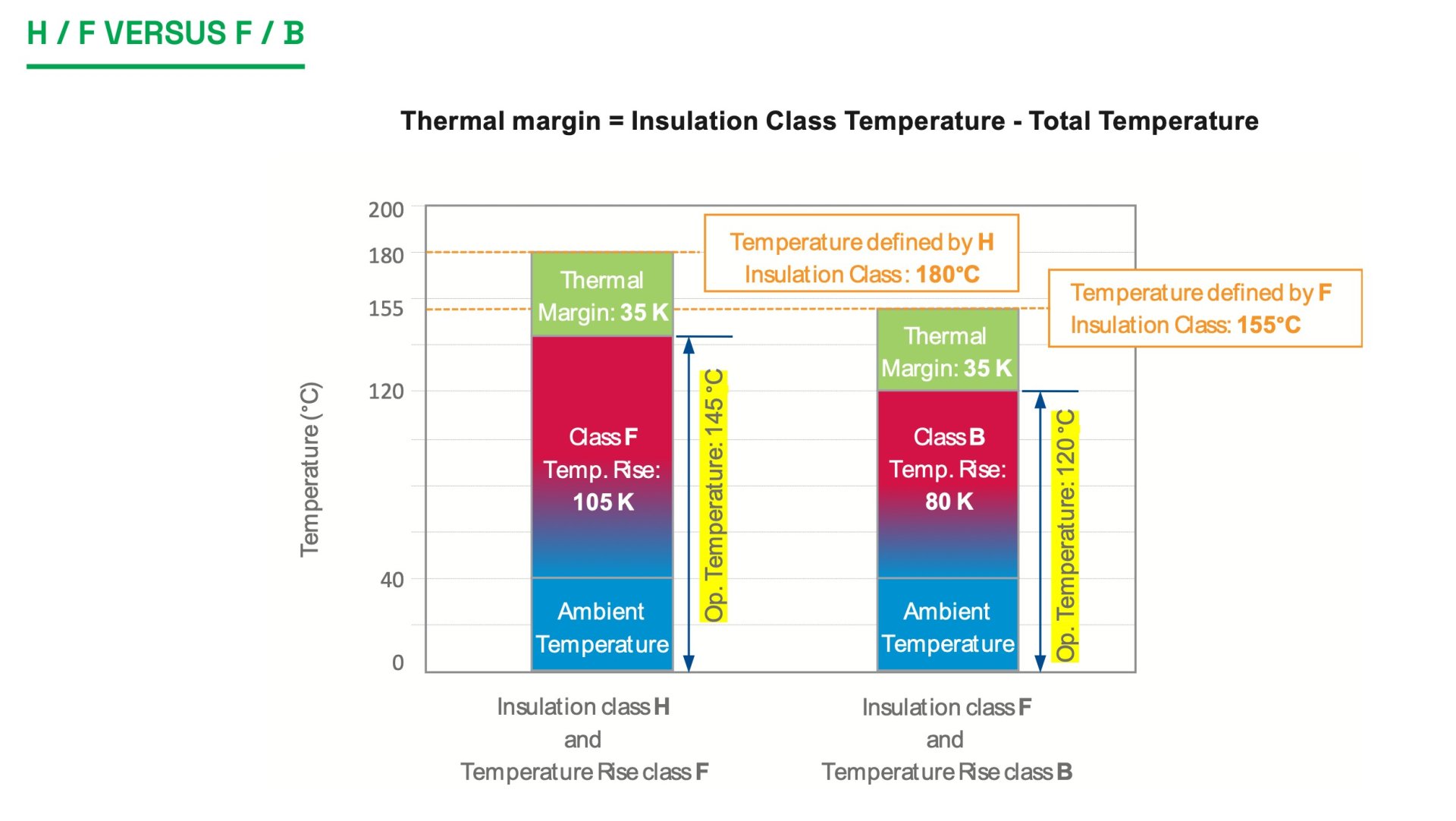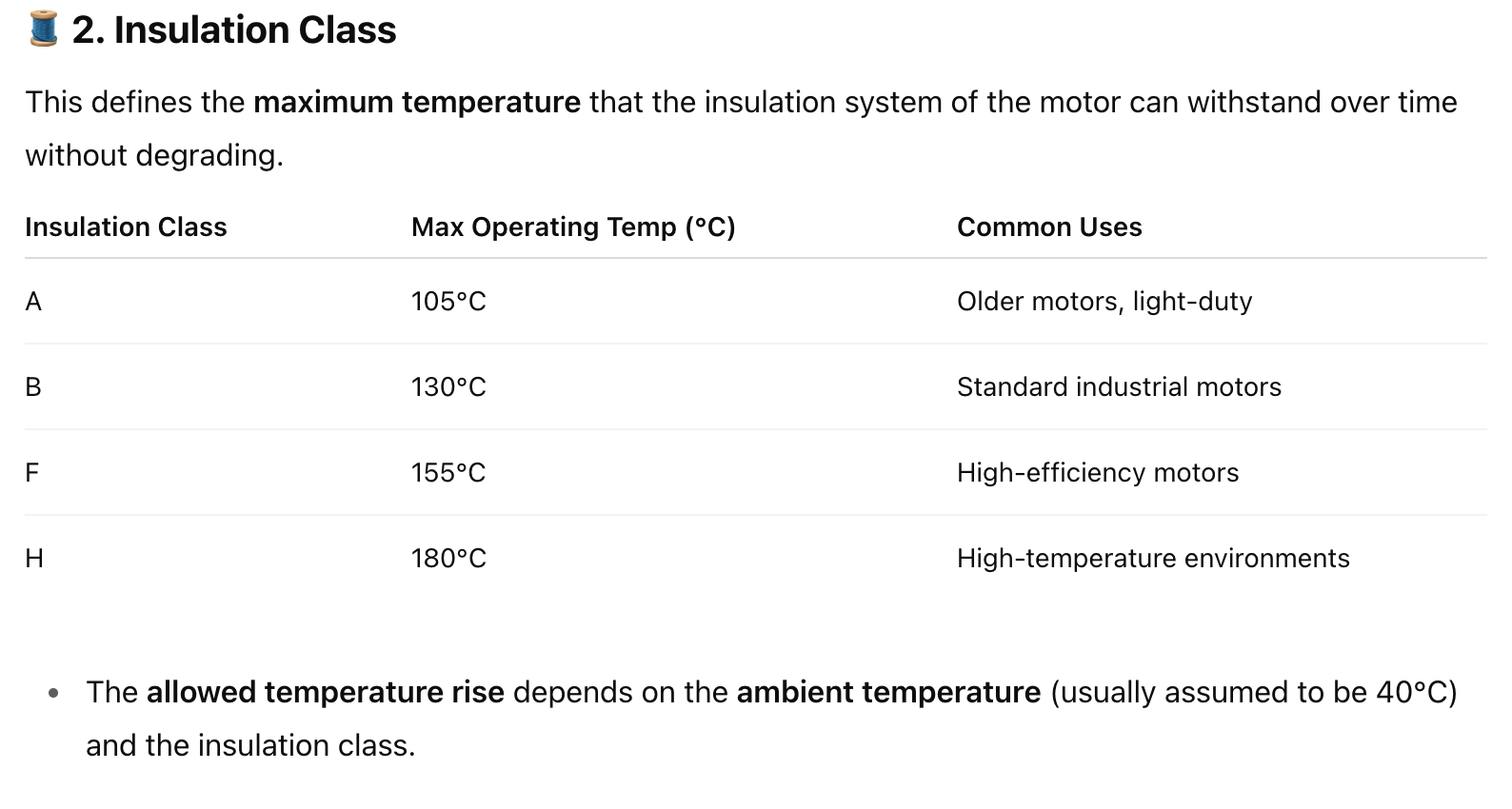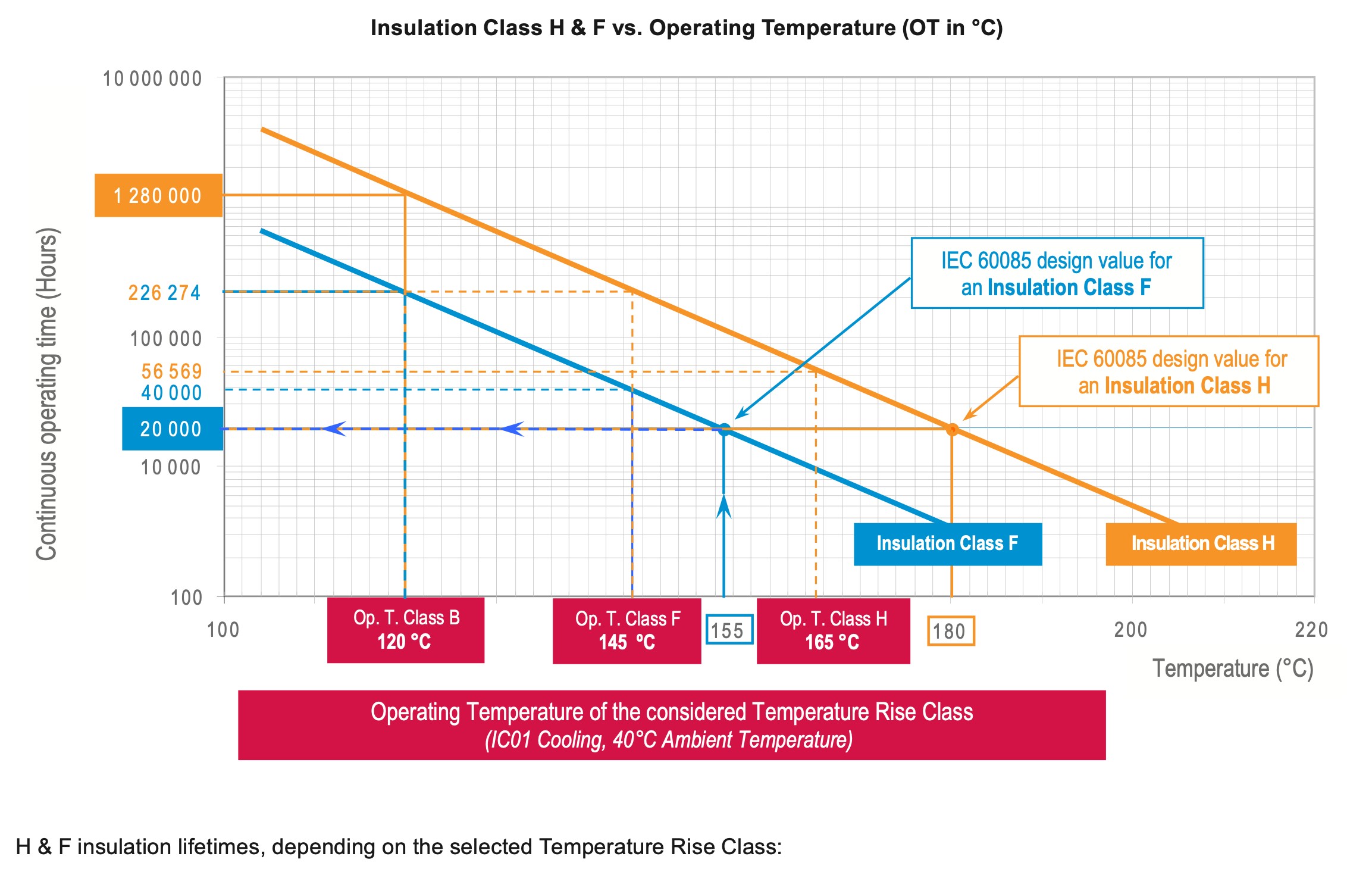Insulation Class and Temp Rise Class

INSULATION CLASS
This defines the maximum temperature that the insulation system of the motor can withstand over time without degrading.
The IEC 60085 specifies that an Insulation system permanently submitted to its Insulation Class temperature has a life expectancy of 20,000h.

TEMPERATURE RISE CLASS
Definition: The difference between the motor's operating temperature and the ambient temperature. It's typically measured after a motor runs under full load conditions for a specified period. Motor temperature rise is usually measured in degrees Celsius (°C).
The temperature rise class is the maximum allowed difference between the measured temperature, after temperature stabilisation, of one of the active generator components (stator or rotor copper) and the cooling fluid temperature (e.g. ambient air temperature for instance, at 40°C).
In other words, this is the maximum allowed temperature increase, from cold to warm condition, when the alternator is running at rated values.
The IEC 60034-1 defines the temperature rise class
GENERATOR INSULATION LIFETIME EXTENSION POSSIBILITIES
The « Rule of 10 » (c.f. Arrhenius Equation) can be adapted to approximate the relationship between insulation lifetime and operating temperature. This rule states that if a generators operating temperature is reduced by 10°C, the insulation system lifetime is doubled. Using a higher Insulation Class, associated with a lower Temperature Rise Class, allows a drastic increase the insulation lifetime
Why It Matters
Exceeding the insulation class temperature will reduce the life of the motor.
Correct pairing of load, cooling, and insulation class helps ensure motor longevity and safe operation.


